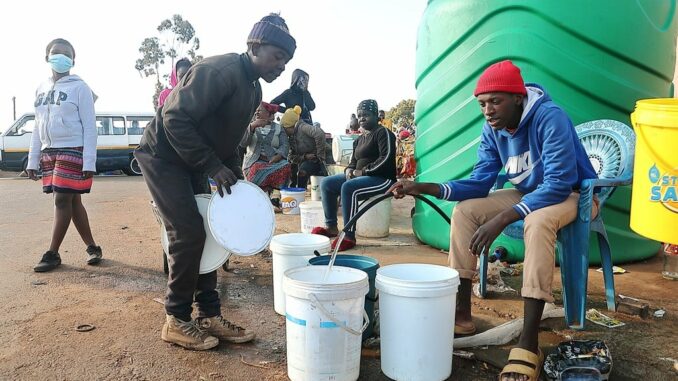
In recent weeks, Tsholofelo Moloi has joined the queues of South Africans in Johannesburg seeking water amidst an unprecedented collapse of the city’s water system, affecting millions across diverse neighborhoods. This severe scarcity, exacerbated by scorching temperatures and neglected infrastructure, poses a significant challenge for the ruling African National Congress ahead of a pivotal election.
The term “water-shedding,” mirroring electricity “load-shedding,” underscores the widespread scarcity. Moloi, residing in Soweto, expresses skepticism about enduring the crisis, as residents citywide await municipal tanker deliveries, resorting to desperate measures like seeking water from nearby establishments. Purchasing water proves burdensome, particularly for a population where over a third are unemployed.
“We are struggling,” Moloi shares. “We require water for cooking, education, and basic hygiene. It’s immensely stressful.” While water shortages aren’t uncommon, this crisis spans the region, prompting urgent calls from water management authorities to curb consumption to avert a complete collapse.
Outraged activists and residents decry years of infrastructure neglect, directing mounting frustration at authorities, even in affluent neighborhoods. Protests erupt as residents face prolonged dry spells, with councilors like Lefa Molise voicing doubts about a swift resolution. Thabisile Mchunu, an elderly resident, recounts resorting to manual water collection amidst uncertain access.
Uncertainty looms as Rand Water urges conservation amid dwindling reservoir levels, compounded by challenges in the electricity system. Mayor Kabelo Gwamanda acknowledges the multifaceted issues faced by the city, underscoring the urgency of addressing both water and electricity infrastructure deficiencies.
